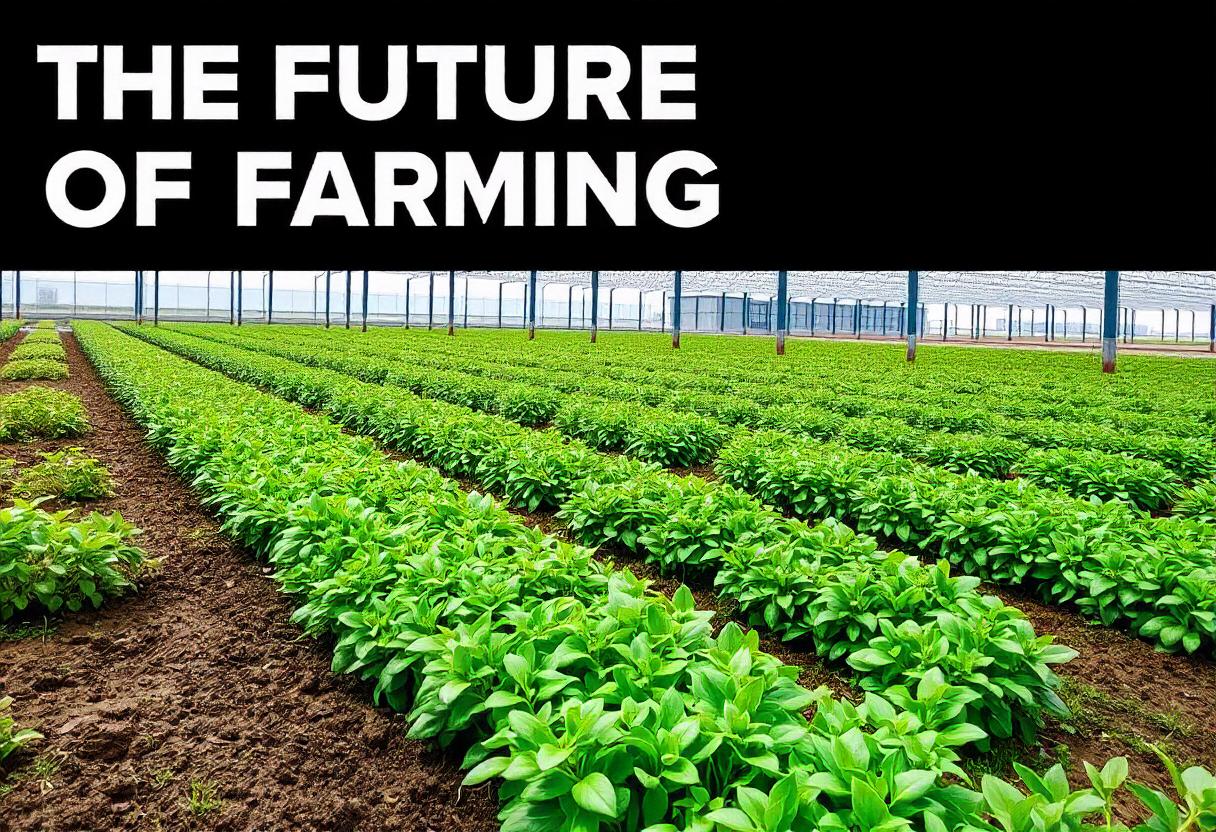
Introduction
Farming has been a cornerstone of human civilization, evolving from rudimentary subsistence practices to a complex, technologically advanced industry. As the global population continues to rise and environmental challenges become more pressing, the future of farming is poised for transformative changes. This article explores the key trends, innovations, and challenges shaping the future of agriculture, offering insights into how farming will adapt to meet the needs of the 21st century.
Technological Innovations
- Precision Agriculture
Precision agriculture is revolutionizing the way farmers manage their crops and livestock. By utilizing GPS technology, remote sensing, and data analytics, precision agriculture allows for the precise application of water, fertilizers, and pesticides. This approach enhances efficiency, reduces waste, and minimizes environmental impact. For instance, drones equipped with sensors can monitor crop health, identify pest infestations, and even apply treatments with pinpoint accuracy. - Artificial Intelligence and Machine Learning
AI and machine learning are increasingly being integrated into farming practices. These technologies enable predictive analytics for weather patterns, soil conditions, and crop yields. AI-powered robots and autonomous machinery are also emerging, capable of performing tasks such as planting, weeding, and harvesting with minimal human intervention. This automation promises to increase productivity and reduce labor costs. - Vertical Farming and Controlled Environment Agriculture
Vertical farming and controlled environment agriculture (CEA) are innovative solutions designed to address land scarcity and optimize resource use. Vertical farms utilize stacked layers of crops in a controlled environment, often within urban settings. CEA systems, which include hydroponics and aeroponics, provide plants with optimal conditions for growth while conserving water and nutrients. These methods can produce food year-round and reduce the carbon footprint associated with traditional farming. - Genetically Modified Organisms (GMOs) and CRISPR Technology
Genetic modification and gene-editing technologies like CRISPR are playing a crucial role in developing crops that are more resistant to pests, diseases, and environmental stresses. GMOs have already contributed to increased yields and reduced reliance on chemical inputs. CRISPR technology offers the potential for precise genetic enhancements, enabling the development of crops with improved nutritional profiles and adaptability to changing climate conditions.
Sustainable Practices
- Regenerative Agriculture
Regenerative agriculture focuses on restoring soil health, increasing biodiversity, and sequestering carbon. Practices such as cover cropping, reduced tillage, and agroforestry help rebuild soil organic matter, enhance water retention, and support ecosystem diversity. This holistic approach not only improves the resilience of farming systems but also contributes to mitigating climate change. - Organic Farming
Organic farming emphasizes the use of natural inputs and practices to maintain soil fertility and manage pests. The demand for organic produce is growing as consumers become more conscious of food safety and environmental impact. Organic farming methods prioritize biodiversity, ecosystem health, and the reduction of synthetic chemicals, aligning with broader sustainability goals. - Water Management
Efficient water management is crucial for the future of farming, especially in regions experiencing water scarcity. Innovations such as drip irrigation, rainwater harvesting, and soil moisture sensors help optimize water use and reduce waste. Additionally, the development of drought-resistant crops and water-efficient farming techniques are essential for adapting to changing climate conditions.
Challenges and Solutions
- Climate Change
Climate change poses significant challenges to agriculture, including altered precipitation patterns, increased frequency of extreme weather events, and shifting growing seasons. Farmers will need to adopt adaptive strategies such as climate-smart agriculture, which involves selecting resilient crop varieties, adjusting planting schedules, and implementing soil conservation practices. - Soil Degradation
Soil degradation, driven by factors such as erosion, nutrient depletion, and pollution, threatens agricultural productivity. Addressing soil health through practices like crop rotation, organic amendments, and reduced tillage is essential for sustaining long-term agricultural output. Research into soil conservation techniques and sustainable land management is ongoing to combat this issue. - Food Security
Ensuring food security in the face of a growing population and limited resources is a critical challenge. Innovations in farming technology, coupled with improvements in supply chain management and food distribution, are key to addressing this issue. Additionally, enhancing global collaboration and investment in agricultural research and development can contribute to more resilient and equitable food systems.
The future of farming is a dynamic and multifaceted landscape, driven by technological advancements, sustainable practices, and the need to address pressing global challenges. As agriculture continues to evolve, the integration of innovation and sustainability will be crucial for meeting the demands of a growing population while preserving the planet’s resources. By embracing these changes and fostering collaboration across sectors, we can build a resilient and productive agricultural system for future generations.